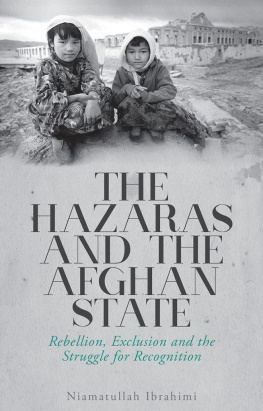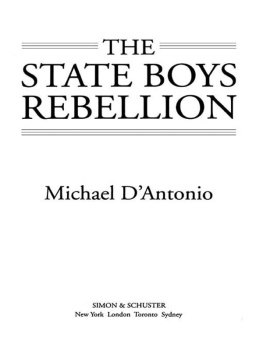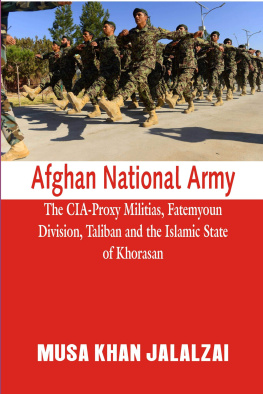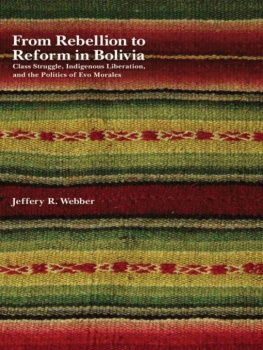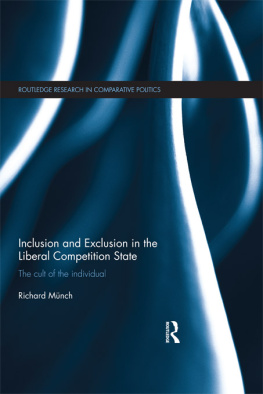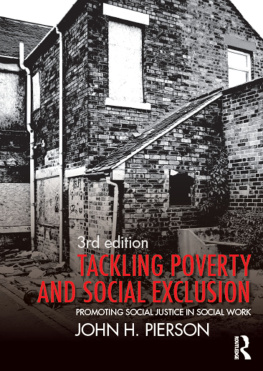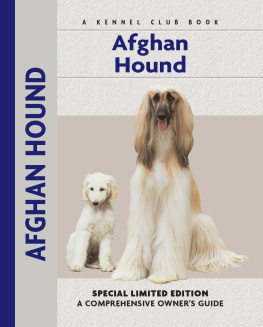Ibrahimi - The Hazaras and the Afghan state rebellion, exclusion and the struggle for recognition
Here you can read online Ibrahimi - The Hazaras and the Afghan state rebellion, exclusion and the struggle for recognition full text of the book (entire story) in english for free. Download pdf and epub, get meaning, cover and reviews about this ebook. City: London, year: 2017, publisher: Hurst & Company, genre: Politics. Description of the work, (preface) as well as reviews are available. Best literature library LitArk.com created for fans of good reading and offers a wide selection of genres:
Romance novel
Science fiction
Adventure
Detective
Science
History
Home and family
Prose
Art
Politics
Computer
Non-fiction
Religion
Business
Children
Humor
Choose a favorite category and find really read worthwhile books. Enjoy immersion in the world of imagination, feel the emotions of the characters or learn something new for yourself, make an fascinating discovery.
- Book:The Hazaras and the Afghan state rebellion, exclusion and the struggle for recognition
- Author:
- Publisher:Hurst & Company
- Genre:
- Year:2017
- City:London
- Rating:5 / 5
- Favourites:Add to favourites
- Your mark:
- 100
- 1
- 2
- 3
- 4
- 5
The Hazaras and the Afghan state rebellion, exclusion and the struggle for recognition: summary, description and annotation
We offer to read an annotation, description, summary or preface (depends on what the author of the book "The Hazaras and the Afghan state rebellion, exclusion and the struggle for recognition" wrote himself). If you haven't found the necessary information about the book — write in the comments, we will try to find it.
Ibrahimi: author's other books
Who wrote The Hazaras and the Afghan state rebellion, exclusion and the struggle for recognition? Find out the surname, the name of the author of the book and a list of all author's works by series.
The Hazaras and the Afghan state rebellion, exclusion and the struggle for recognition — read online for free the complete book (whole text) full work
Below is the text of the book, divided by pages. System saving the place of the last page read, allows you to conveniently read the book "The Hazaras and the Afghan state rebellion, exclusion and the struggle for recognition" online for free, without having to search again every time where you left off. Put a bookmark, and you can go to the page where you finished reading at any time.
Font size:
Interval:
Bookmark:

NIAMATULLAH IBRAHIMI
Rebellion, Exclusion and the Struggle for Recognition

HURST & COMPANY, LONDON
First published in the United Kingdom in 2017 by
C. Hurst & Co. (Publishers) Ltd.,
41 Great Russell Street, London, WC1B 3PL
Niamatullah Ibrahimi, 2017
All rights reserved.
Printed in India
Distributed in the United States, Canada and Latin America by Oxford University Press, 198 Madison Avenue, New York, NY 10016, United States of America.
The right of Niamatullah Ibrahimi to be identified as the author of this publication is asserted by him in accordance with the Copyright, Designs and Patents Act, 1988.
A Cataloguing-in-Publication data record for this book is available from the British Library.
ISBN: 9781849049818
This book is printed using paper from registered sustainable and managed sources.
www.hurstpublishers.com
To my parents for their unconditional love
This book is the outcome of several years of research at a number of institutions, and friendship and intellectual exchange with many individuals. As a result, I owe enormous intellectual and personal debts to many more people than I can mention here.
Prior to developing a long-term research interest in the politics and history of Hazaras in Afghanistan, I worked for the International Crisis Group from 2003 to 2005. It was my first opportunity to visit most of Afghanistan and meet and talk to people from all social, political and ethnic groups of the country. I wish to thank Dr Samina Ahmed, Mr Nick Grono, Mr Bob Templer, Mr Vikram Parekh, Ms Joanna Nathan, Ms Candace Rondeaux, Mr Michael Shaikh and Mr Faiz Ali for all their support and assistance in enabling me to witness and research the first few years after the toppling of the Taliban regime by the US-led international intervention in 2001.
The idea for this book was born with my work for the Crisis States Research Centre of the London School of Economics from 2005 to 2010 in Afghanistan. Two of the research papers that I published by the centre have now been revised and appear as of this book. My work with the Crisis States Research Centre kindled my research interest in the politics of Hazaras and of Afghanistan more generally. I am extremely grateful to Professor James Putzel, Dr Antonio Giustozzi and Ms Wendy Foulds for their support and cooperation in those years.
In 2012, I spent six months as a Visiting Fellow at the Centre for Development Studies of the Free University of Berlin. I wish to thank Professor Hermann Kreutzmann and Dr Stefan Schtte from the Centre for Development Studies for hosting me and making me feel at home in Berlin, and Professor Ingeborg Baldauf and Mr Ahmad Azizi from Humboldt University, and Professor Conrad Schetter from the University of Bonn, with whom I conversed at several workshops and seminars of the Crossroads Asia Network.
In Kabul, I have greatly benefited from the help of the Afghanistan Centre at Kabul University (ACKU), founded by the legendary American scholar of Afghanistan, Nancy Dupree. Mr Waheed Wafa, Haji Daoud, Mr Ali Basharyar and other staff at the centre always made me feel welcome and helped me find, access and photocopy materials that were otherwise unavailable in Kabul.
I also owe a debt to my colleagues at the Asia-Pacific College of Diplomacy at The Australian National University where the book took its final shape. I am particularly indebted to Professor William Maley for his invaluable support, friendship and generosity with his time, extensive personal collection of books on Afghanistan and most importantly his insights and knowledge of Afghanistan. I would also like to thank Dr Jochen Prantl, the Director of the APCD, Mrs Andreas Haese and Mr Craig Hanks for all their support for my research, and Dr Srinjoy Bose for his friendship and intellectual conversations on Afghanistans politics and history.
My work on the Hazaras has benefited immensely from existing historical, ethnographic and anthropological literature on the Hazaras and other ethnic groups in Afghanistan. I am delighted especially to acknowledge my immensely useful conversations over many years with Dr Sayed Askar Mousavi, Professor Alessandro Monsutti, Dr Kristian Berg Harpviken and Haji Kazim Yazdani. I have also greatly benefited from both the works of, and my own personal conversations with, Professor Nazif Shahrani.
Over the years, I have profited greatly from my friendship with a number of other scholars and practitioners both in and out of Afghanistan. Mr Daoud Yosufi was particularly helpful in connecting me with so many valuable people in Kabul, Mazar-e Sharif, Ghazni and Hazarajat. In the summer of 2009, Mr Mir Khadim Baig Karbalaye invited me, together with Mr Kazim Yazdani, to make a trip from Kabul to his home district, Laal wa Sarjangal, where he hosted us with immense hospitality and generosity. I would also like specially to thank Mr Abbas Agah, Mr Abbas Farasso, Mr Ali Amiri, Mr Akram Gizabi, Mr Amir Foladi, Mr Ali Reza Younespour, Mr Asadullah Walwalji, Ms Fatema Karbalaye, Mr Hadi Marefat, Mr Hafiz Mansour, Mr Ishaq Muhammadi, Mr Jalal Awhidi, Mr Khudadad Bisharat, Dr Liza Schuster, Mr Matin Alizadah, Dr Muhammad Qasim Wafayezada, Mr Nader Nadery, Mr Najeeb Asadi, Ms Najla Ayubi, Dr Nasir Andisha, Professor Nazif Shahrani, Dr Nemat Bizhan, Dr Nishank Motwani, Mr Rahmuddin Haji Agha, Mr Sakhi Darwish, Mr Shahmahmood Miakhel, Ms Seema Ghani, Dr Susanne Schmeidl, Mr Qurban Ali Erfani, Dr Saifuddin Saihun, Dr Sima Samar, Dr Timor Sharan and Mr Zia Muhammadi for having helped me in my research on Hazaras or my broader research interests on Afghanistans politics and history in various ways.
Over the course of my research, I interviewed many people, some of whom I have chosen not to mention by name as the topics of our conversations involved sensitive issues with continuing social, security and political significance. They were extremely generous with their time and I particularly thank them for the faith and trust they placed in me by sharing their personal histories.
I could not have completed this long journey without the love and support I received from my family. I cannot thank my parents enough for their unwavering determination to support my education under extremely difficult circumstances. Gul Begum, my wife, has been a source of love and inspiration and has been extremely patient with my long hours at the office and work at home. I acknowledge that she often reminded me of my approaching deadlines. Along the journey that led to the publication of this book, we have also been blessed by our two wonderful sons, Hazhir and Shahir, who are our incredible sources of strength and inspiration.
Lastly, I would like to express my sincere gratitude to Michael Dwyer of Hurst Publishers for his support and patience as I worked on the manuscript over a few years. I am also delighted to acknowledge Alasdair Craig who coordinated the review of the manuscript by two excellent peer reviewers, Rebecca Wise who took care of its final copy editing, Jon de Peyer who was responsible for the coordination and final production and to Sebastian Ballard for his redrawing of the maps.
| Arbaab | landlord, chief of the village, master |
| Amir al-Momenin | commander of the faithful, ruler |
Font size:
Interval:
Bookmark:
Similar books «The Hazaras and the Afghan state rebellion, exclusion and the struggle for recognition»
Look at similar books to The Hazaras and the Afghan state rebellion, exclusion and the struggle for recognition. We have selected literature similar in name and meaning in the hope of providing readers with more options to find new, interesting, not yet read works.
Discussion, reviews of the book The Hazaras and the Afghan state rebellion, exclusion and the struggle for recognition and just readers' own opinions. Leave your comments, write what you think about the work, its meaning or the main characters. Specify what exactly you liked and what you didn't like, and why you think so.

